REBGuest
Truly addicted to art, cinema, literature, animation, theatre and music... I need my daily dose of culture and this is where I get it!
Correspondent II
- Plebian Penman
- Common Writer
- Aristocratic Author
- Lurker
- Pssst
- Hand Raiser
- Vocal
- Outspoken
- Sharp-Eyed Citizen
- Town Watch
- Detective Deskman
- Penman Patrol
- Actor
- Producer
- Well Read
- Art Collector
- Theme of the Month
- Article of the Month
- ?
- Articles
19 - Featured
16 - Comments
167
- Ext. Comments
96 - Processed
104 - Revisions
86
- Topics
48 - Topics Taken
0 - Notes
71
- Topics Proc.
90 - Topics Rev.
26
- Points
5015 - Rank
16 - Score
3286
Latest Articles
Latest Topics
Shakespeare in FilmsSelect a few of Shakespeare plays that have been adapted in films and analyse them. What can film techniques bring to the plays? How does it change our relationships to characters? The story? Are there elements that can only be efficient on stage? What do actors who do both (David Tennant, Kenneth Branagh, Ian McKellen etc…) say about the difference between performing Shakespeare on stage and in front of a camera?
|
Identifying the James Bond GirlThe 'James Bond Girl', as we like to refer to the main female characters in the Bond series, has had many faces and many different nationalities, from Sophie Marceau to Lea Seydoux (yes, a lot of French girls! Does that say anything about our conceptions of French women and the images we associate with them?). It would be interesting to have a look at the different performances/interpretations in the Bond filmography. What ideals of femininity do they relay? How do nationality and foreignness affect their performances? What does that bring? What are our expectations of the James Bond girl? How do they compare with books?
|
French Canadian CinemaQuebec's film industry is commonly regarded as a distinct entity from its English Canadian counterpart. Write a study and history of French Canadian Cinema, looking at filmmakers like Xavier Dolan, Atom Egoyan, Denis Villeneuve…. What makes it paricular? How can it be exported? Is there a Hollywood/Canadian influence?
|
A comprehensive History of Twickenham StudiosTwickenham Studios in the UK might not be well known, yet they have worked for the past century on enormous films. They have produced the Beatles films in the 1960s, The Italian Job with Michael Caine, My Week with Marilyn, The Iron Lady, War Horse, Kick-Ass among others. They are also particularly famous for their post-production work, receiving Emmys, BaFTAS and Oscar nominations for their sound editing of The Martian or Amy for example. Celebrating their 100th anniversary, it would be interesting for someone to look into their history and create a retrospective of their most famous work.
|
Black Mirror - what to expect of the new seasonThe new season of Black Mirror is in production. Netflix has now bought the rights and is changing the structure of the series, expanding to 12 episodes for this new season. They will no longer feature on TV but exclusively on Netflix and online. What can we expect from the new season? Will these changes impact the quality of the narrative? Will the themes be explored in a similar way and as thoroughly? Do you think they would benefit from linking episodes together since they now have more (although this might not be their ambition)?
|
BBC 3's turn to DigitalThe TV Channel BBC 3 has just turned into an online channel, abandoning its television platform to embrace the digital entirely. It has always targeted young people yet had low audiences and did not make much profit. The decision to turn completely digital and online seems to be BBC's way to keep its 'young' audience, who spends more time online than in front of the TV. What is there to gain? What is there to loose? How far until a TV channel is pushed to completely reinvent itself? Is the future of TV online? |
The work of Concept ArtistsThe work of Concept Artists is one of passion, hard-work, determination and patience. They come up with incredible designs that really help the production and give a visual stimuli to directors, producers, set designers, production managers and art directors. They manage to translate the director's and screenwriter's vision into beautiful images that are then used as a basis to convey the film's atmosphere and tone. They also help the technicians (lighting, camera work) and touch upon all aspects of production. It would be interesting if someone decided to shed a bit more light on these works. What is a concept artist? What do they achieve? How do they impact? Also, would be really interesting to find the concept art for big films to illustrate the point, like Harry Potter, Lord of The Rings or Marvel Universe films etc…
|
The conditions for watching films: the importance of the big screenThis is a hard topic to write about so the article will probably have to be personal yet rely on statistics, investigations and numbers as well. The conditions of how we watch a film are extremely important as they influence our reception, understanding and appreciation of the film. Watching a classic like The Usual Suspects on a small screen is never as satisfying as watching it on a big screen. Yet classics are very rarely projected again on big screens. In Paris, a cinema has just opened, specializing in projecting Hollywood and French classics on a big screen once again for the public. How much are screen size and ratio important in our experience of the film? How can you read a film through the cinema experience and through the home experience? How aware are the distributors on this subject and how does it influence their decision? In contrast, can we appreciate a film more at home, in the comfort of our personal space? How does our experience change if we watch it on TV? On a laptop?
|
Latest Comments
| America In A Song: A Cultural Study Through Music | |
And yes, by having that power of language, I could choose my own books and try new things. That and thanks to a mother in love with literature and pushing me to read lots of different things, reading me tales from Ancient Greece, Africa, Japan and so on | Translating Children Books: Difficulties and Reluctances |
I’m glad you asked this – I think it is essential to teach children different languages, and the earlier the better. At an early stage, they can assimilate the language and the accent with ease. I am 100% behind it and know it works because I have experienced it myself – I am French, born in Paris, lived there for 18 years of my life, and never spoke English at home. But I was in an international/bilingual school and learned to read and write in English at 5 years old. With different methods of teaching, programs to completely immerse children within the English language, supported by American, English, Australian, Scottish teacher… I became bilingual in a matter of 2 or 3 years. From then on, we studied literature – English, American, African, Asian etc. Then we studied Spanish authors, in Spanish classes. Without this opening to different cultures and texts, I would not be where I am now, and I do not see why it would not work for anglophone children. | Translating Children Books: Difficulties and Reluctances |
Oh don’t worry, I didn’t take it badly aha! I agree with you completely. Let’s discuss this in the future! 🙂 | Maternal Horror Films: Understanding the 'Dysfunctional' Mother |
Oh yes I agree with you, but unfortunately I am not the one who makes those films aha! Of course the dysfunctional mother role has a lot more facets to explore, and directors could do much more of it. And of course not all horror films use this as a trope, thankfully! It’s a rich genre and I never said all horror films used this trope! It is just one of them, and an interesting one to explore 🙂 like you, I’d love to see it develop more and I do have higher hopes after watching The Babadook, a more contemporary comment on women’s roles in society, the way they are regarded, and the constant connection to mental health issues. And it was made by a woman – so there is hope to see new things around the subject! | Maternal Horror Films: Understanding the 'Dysfunctional' Mother |
Fascinating, thanks so much for this! I haven’t watched Coraline in its integrity but would love to, especially after all you said! And New Mother sounds fascinating. | Maternal Horror Films: Understanding the 'Dysfunctional' Mother |
I think this is a great point, and I’m sorry I didn’t see this earlier! While writing the article, I definitely thought that creating a rebellious and ‘dysfunctional’ mother figure (dysfunctional by the standards we have of motherhood of course, often moulded by patriarchal and Freudian beliefs) actually empowered them to an extent, and I would love to have more time to explore this idea. Somehow by rejecting the motherly role, the oppressed sexuality, the space of the home and the need to detach herself from the child, she refuses patriarchal values. This empowers her which makes her ‘scary’ and ‘dyfsunctional’ to patriarchy’s and society’s eyes. I definitely feel like I didn’t expand that point enough. But at the same time, you are right – those mothers come from a male perspective anyway, so are they actually constructed as empowered women? Do you need to be ‘dysfunctional’ according to society to actually become empowered? Does it mean empowerement comes with rejection of the child, extreme behaviour, signs of mental illness, a rebellious and abject sexuality, and a monstruous nature? I don’t really think so, again these are partiarchal views somehow. It really is a tough one! | Maternal Horror Films: Understanding the 'Dysfunctional' Mother |
Thank you very much for all this nice feedback, and I am glad you enjoyed the article! The topic is fascinating and horror films have so much more to give if one takes the time to analyse them. | Maternal Horror Films: Understanding the 'Dysfunctional' Mother |
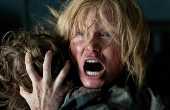


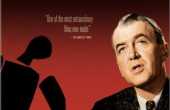
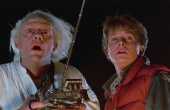
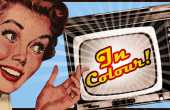
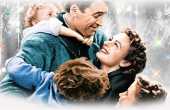

Hi Kate, my comment is probably too late by now, but I think you may be thinking of ‘America’ from West Side Story, from Stephen Sondheim and Leonard Bernstein